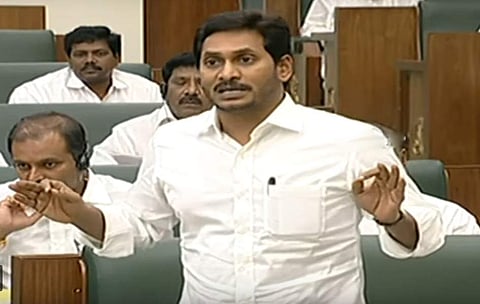

VIJAYAWADA: After the Ministry of New and Renewable Energy and a few credit rating agencies cautioned that the YSRC government’s decision to review and renegotiate renewable Power Purchase Agreements (PPAs) would affect the investments, Crisil Ratings observed that such a move could mount a stress on renewable projects of about 5,200 megawatts — with an estimated debt exposure of over Rs 21,000 crore. The agency said that nearly half of the said capacity was at a higher risk of default due to lack of liquidity support.
In a statement on Tuesday, senior director of Crisil Ratings Manish Gupta said, “Around 5.2 Giga Watts (GW) projects out of 7.5 GW in AP are supplying power to State discoms under long-term power purchase agreements (PPAs) at pre-determined tariffs. They now face renegotiation risk given that their tariffs are over the recent auction prices of below Rs 3 per unit for renewable projects and average power purchase cost of Rs 3.8 per unit in AP in fiscal 2019.”
Assuming a typical debt funding per MW of Rs 4 crore, this would put Rs 21,000 crore of debt at risk of default, he noted. For the record, the Jagan government ordered constitution of a high-level negotiation committee to bring down the tariffs and has also been initiating talks with power developers. On July 1, the HLNC was asked to submit a report in 45 days.
Manish Gupta said the debt would be at the risk of default as generators may take a legal route if the committee gives any adverse recommendations, prolonging the delays in payments. “In the event of any adverse recommendation by the committee, generators may take the legal route to stall implementation, which will prolong resolution and result in further delays in payment to renewable projects. AP discoms are already facing a significant resource crunch with the revenue gap widening in fiscal 2019.”